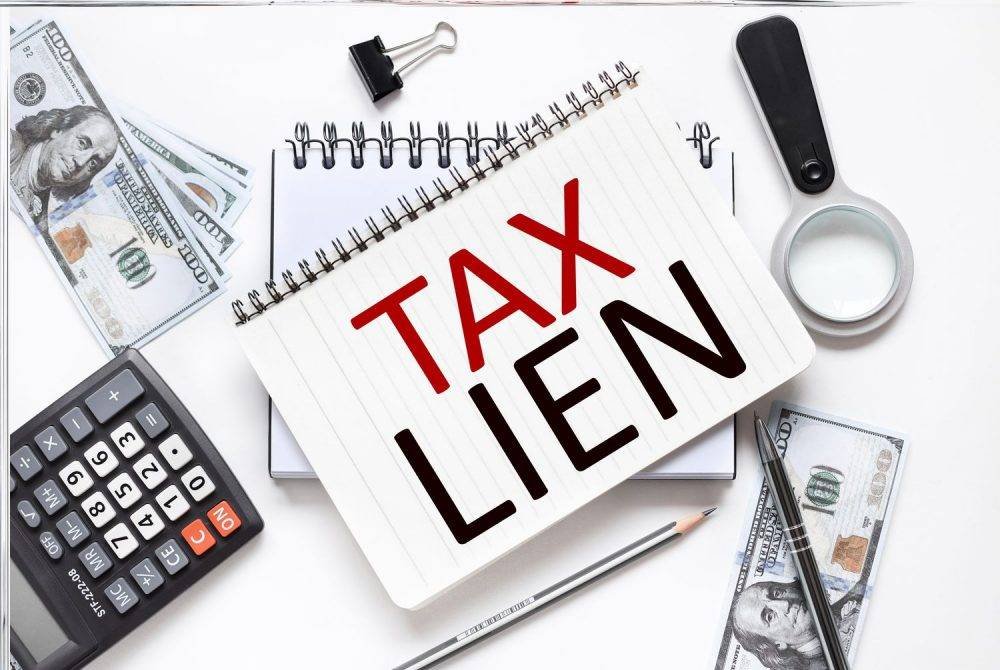A tax lien is a legal claim against a property by a government entity for unpaid taxes. A tax lien, also known as a “statutory lien,” is imposed on real estate or personal property to secure payment of taxes owed to a government entity. Tax liens are an effective way for the government to collect outstanding taxes, as the IRS has superior rights over other creditors to any property the taxpayer owns. The lien applies to the taxpayer’s real and personal property when the lien is created and after. Liens prohibit the sale or transfer of assets without government consent.
Understanding a Tax Lien
The federal or state government can place a tax lien on a property if the owner has income tax arrears, and local governments can impose liens against paying property taxes or local income taxes. Foreclosure does not mean that the property is sold; instead, it ensures that the tax authorities get the first claim against all other creditors fighting for the creditor’s assets.
The Process of a Tax Lien
The process begins when the taxpayer receives a letter detailing the amount owed. These are known as reminders and payment requests. If a taxpayer defaults on a debt or attempts to pay it off with the Internal Revenue Service (IRS), the agency can place a lien on the person’s assets. These liens are attached to all taxpayer assets, including securities, real estate, and vehicles. All assets obtained by the taxpayer during the existence of a pawn also apply. It also relates to business property and claims to companies. Suppose a taxpayer files for bankruptcy, liens, and tax obligations may continue after bankruptcy. Most debt is paid off in bankruptcy, but not federal tax debt.
Getting Out of a Tax Lien
The easiest way to get rid of a federal tax lien is to pay the taxes you owe. However, if this is not possible, there are other ways to deal with liens with help from the IRS.
- The IRS considers releasing a tax lien if the taxpayer agrees to a payment plan with automatic monthly payments until the debt is paid off.
- A taxpayer may be able to dispose of specific property, effectively removing it from the lien. Not all taxpayers or properties qualify for the exemption, and IRS publication 783 describes the rules regarding property exemption.
- While subordination does not remove a lien on the property, it sometimes makes it easier for taxpayers to obtain a mortgage or other loan. IRS Form 14134 is used to request such an action.
- Another process, revocation of notices, removes public notices of federal tax liens. The taxpayer remains liable for the debt, but once released, the IRS does not compete with other creditors for the debtor’s assets. Form 12277 is an application.
If paying taxes is impossible, the taxpayer should pay off as much debt as possible and apply to the bankruptcy court to settle the remainder.
How do tax liens work?
Investors in tax deposit certificates are rewarded on investment at a statutory interest rate that can pay interest from 16% to 18% to 36%. They are often purchased through annual government tenders but can sometimes be bought by local authorities without a tender. What is a Tax Lien Certificate, and what are some of the advantages of investing in it? Investing in Tax Lien Certificates is one of the safest, most predictable, and most secure investments you can make. Here are some of the unique features of investing in Tax Lien Certificates that will benefit investors:
- Tax Lien Certificates are sold in about half of the US states; the other half sell tax deeds.
- The laws and regulations regarding the sale of Tax Mortgage Certificates are established by state law and regulated by local governments.
- State law sets the maximum interest rate a Tax Lien Certificate can pay, which can earn 16%, 18%, and 36% interest per annum, depending on the state.
- There are no commissions or intermediaries when purchasing a tax deposit certificate or paying it off by non-permanent taxpayers. No additional fees are paid to the broker, and you get back your entire investment and all legal interest.
- Approximately 95% of all tax deposit certificates are paid within three years of issuance.
- Real estate liens secure tax lien certificates. This means you only own the property for the value of the unpaid property taxes and fees and can legally retrieve it if these tax liens are not paid.
How to Invest in Tax-Lien Certificates
If you are interested in investing in a Tax Lien Certificate, you must first determine whether purchasing a public tax liability is legal in your state or county. Assuming that’s the case, the next step is to find a bond auction you can attend. Your local tax office should be able to tell you when the next auction is scheduled.
The most important aspect of investing in a tax lien is your research. Specifically, this means understanding what you are investing in and the specific risks associated with that investment. For example, a property with multiple liens may be a bad investment if the property owner can’t pay it back or seems unlikely to do so.
Also, consider how much of your portfolio you want to allocate to a tax withholding certificate. While it can be profitable, you risk the owner paying off the debt. Delayed returns can mean you have to wait months or even years to start earning interest on your investment.
Tips for Investing
- Consider talking to a financial advisor about tax-deferred investing and whether it’s right for you. SmartAsset’s free tool connects you with up to three financial advisors in your area, and you can interview your partner advisor for free to decide who is the best fit for you. Start now if you’re ready to find an advisor who can help you achieve your financial goals.
- A free property tax calculator can help you determine your area’s property tax rate and average property tax cost.
Conclusion
Investing in tax liens can be attractive if you have the capital and don’t mind the prospect of a longer holding period to generate returns. However, it is essential to weigh the risks as there is no guarantee that your investment will pay off. Completing your due diligence before investing in a tax lien can help you better understand your buying and your potential return on investment (ROI).
Do you need a mortgage to buy an investment property? Call the Tax Lien Code today!


